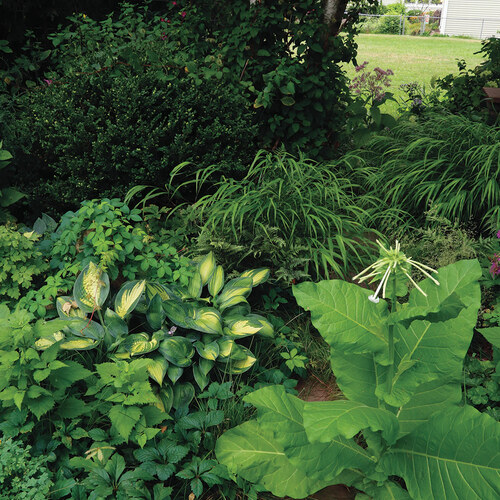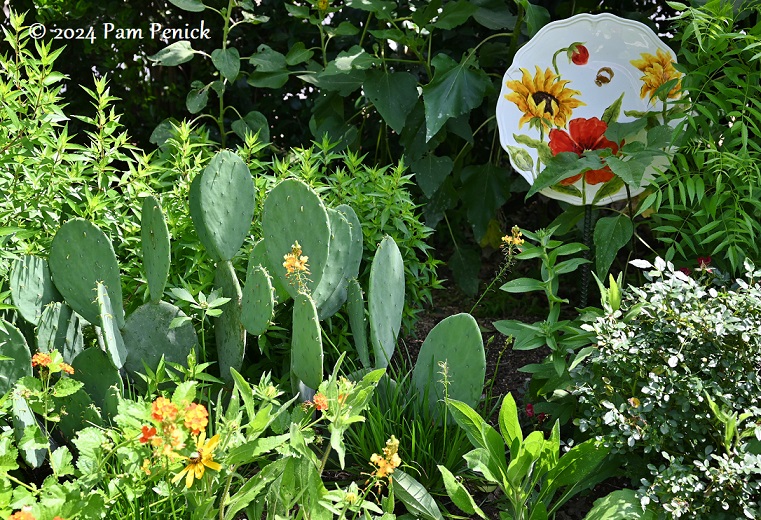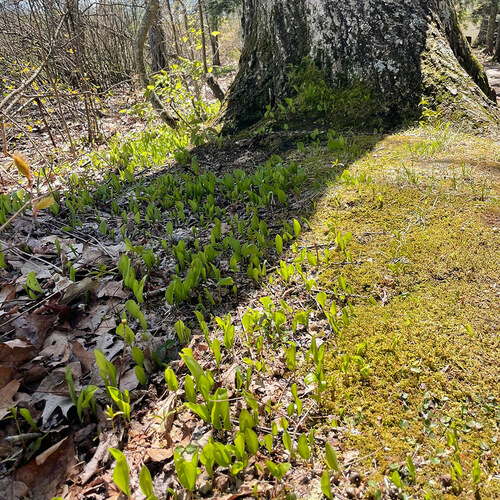Prune ornamental grasses without making a mess
Spring cleanup can be a real mess. If you cut your own ornamental grasses, that’s especially true if it’s a windy day and you’re dealing with taller grasses (e.g., Miscanthus, Panicum) blowing everywhere as they’re cut and fall over.
To prevent this, I take a roll of jute twine to the garden on grass-cleanup day, along with my pruners. I cut an appropriate length of twine, fashioning a little lariat before segmenting a clump of grass into halves, thirds, or quarters (depending upon the girth of the plant). I run the twine end around the grass stems and through the loop, pulling it tight to create a lasso and then tying it off about halfway up the height of the plant. I then prune those stems and have a tidy intact sheaf to put to the side. When I’ve pruned the entire plant this way, the bundles are ready for the compost pile.
—Tony Fulmer, Arlington Heights, Illinois
Cut flowers are happiest after a hot bath
Before cutting fresh flowers from the garden, I fill an insulated travel mug with very hot water. I bring the mug out to the garden. The wide base steadies the mug so I can set it down safely. While I explore the garden, the water stays hot and is ready for each cutting to be plunged in, immediately sealing the stem. If I’m only cutting a few flowers, I’ll keep the top on the mug and open its spout. After cutting all the flowers, I bring the mug inside and arrange the flowers in a pretty vase. My cut flowers remain fresh much longer.
—Patty Regojo, Swarthmore, Pennsylvania
Winning tip: Container liners from a fan palm
My mother is in her eighties, though you would never know it. She is also an avid gardener, and my visits always consist of a garden tour followed by a tongue lashing (aka cussing out) of the squirrels terrorizing her yard. This fall she noticed they were taking the fallen husks off her fan palm for their nests. She started picking them up and sometimes stripping them off the tree herself. We now use these husks as coco-liner substitutes and screens at the bottom of pots to hold soil in.
—Stephanie Fried, Covington, Louisiana
Before you toss those old scallions in the compost…
I planted some wilted grocery store scallions (with short roots attached) 3 inches deep and 2 inches apart in potting soil. I have watered them well, and the little plants have rewarded me with large, succulent onion leaves for the past 10 months. They have thrived in my southwest Florida garden with heavy rains and abundant sunshine. They are more reliable than chives, which
hibernate during hot weather.
—Mary Crum, Fort Myers, Florida
If you can’t stand the heat, get out of the birdhouse

I put up a large birdhouse for flickers that was immediately taken over by squirrels. Wanting to discourage this for the following year, I plugged the entry hole with a large branch stub. Squirrels have since returned yearly to gnaw at the wood to gain entry again. Trying to prevent this, I painted the areas they had chewed with a habanero-based sauce. To avoid having to climb a tall ladder to access the house, I taped a paintbrush to a long piece of lumber and made several applications of the hot sauce. Too bad I wasn’t around to see their reaction when they came back! But so far, it looks as if they have moved on to milder abodes.
—Wendy Lagozzino, Seattle
Tree-root removal
An easy way to remove small tree roots is to use a reciprocating saw. The secret is to keep the blade away from submerged rocks. To do this, slide the blade and move it through the roots gradually.
—John Dyster, Lewiston, New York
Photos: courtesy of the contributors
We need your gardening tips!
Send your tips to [email protected] and please include high-resolution photos if possible. We pay $25 for each tip we publish.
Prize for winning tip:
A FREE one-year subscription to Fine Gardening





